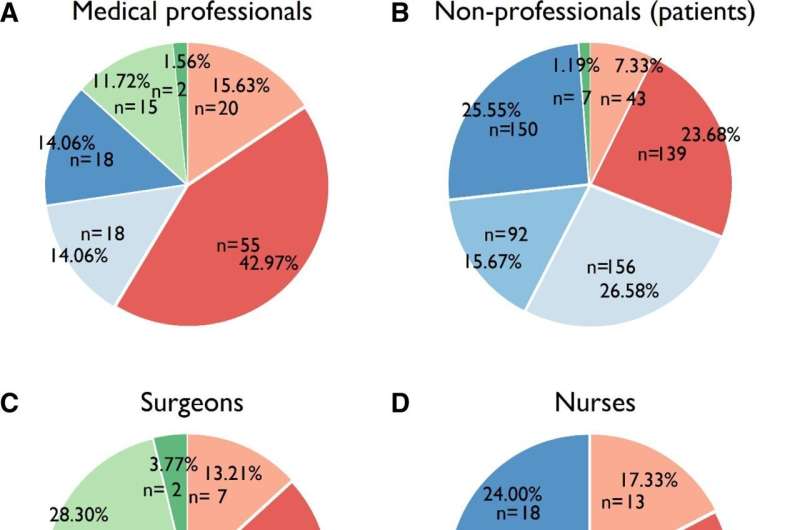
Women making critical decisions on breast reconstruction are more likely to seek out information from other patients on their experiences with new technology than rely on “expert” advice according to a QUT study.
Exploring surgeons’, nurses’ and patients’ information seeking behavior on medical innovations: The case of 3D printed biodegradable implants in breast reconstruction has just been published in Annals of Surgery Open.
Its key findings highlight how surgeons and nurses prefer their information from the scientific processes they’ve been trained in but most patients really want to engage with someone who has a lived experience of using the new technologies.
“As breast cancer will impact approximately one in every seven women in their lifetime, research into how the transition is made to new 3D printed biomaterials alternatives in breast reconstruction surgery is both topical and critical for effective health outcomes,” said Dr. Whyte, lead author, behavioral economist, Research Fellow and Deputy Director of QUT’s Center for Behavioral Economics, Society and Technology (BEST Center)
“The current standard of breast reconstruction following surgical mastectomy involves silicone implants or autologous tissue flaps, with implants being the most common method.
“Due to significant complication and reoperation rates using these techniques, ongoing pre-clinical research aims to use tissue engineering and regenerative medicine strategies to overcome these limitations. The advent of 3D printing has allowed for the creation of scaffolds containing intricate architecture that can be modeled after a patient’s own anatomy.
“While the application of such scaffolds in the clinic is imminent, little is known as to the potential uptake of such technologies by key stakeholders, including surgeons, nurses and patients.”
To find out, an interdisciplinary study from researchers in QUT’s BEST Center, Engineering Faculty, and School of Nursing, along with the Royal Australasian College of Surgeons and the University of New South Wales, conducted what they believe to be the largest ever quantitative analysis of specialist surgeons, breast care nurses, and breast cancer patients.
“We found patients overwhelmingly favor information from a successful patient of the proposed new technology when considering transitioning. Surgeons and nurses instead favor regulatory body advice, peer reviewed journals, and witnessing the procedure performed,” said Dr. Whyte. “Yet while one in four nurses nominated talking to a successful patient as an information source, not a single surgeon chose the same.
“Our findings show large variation exists both within our patient group, and across the three groups.
“For example, women who underwent a type of mastectomy procedure (compared to lumpectomy patients) were more likely to choose a former patient than a surgeon for seeking information relating to a new breast implant technology.
“However, those who chose to undergo a reconstruction procedure, compared to those who did not, were more likely to prefer a surgeon for information relating to a new breast implant technology, rather than a successful patient.
“We also found older women were more likely to choose peer reviewed journal or surgical society or regulator endorsed over a successful patient as an information source and the same could be said for those with greater education qualifications and those without health insurance.
“So, while it’s great to have new and better technology in medicine and health, people need to feel they can understand and embrace it.
Source: Read Full Article